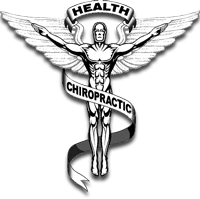Growth Pattern Distortions Related to Orthodontic Headgear Placement. [space] “Headgear” is a familiar term in traditional orthodontics. The oft-dreaded phrase conjures up an image of a child’s face in straps wrapping around the head and attaching to a metal bar, terminating in braces and a mouth-piece. Simply put, traditional orthodontics is structured on the premise that there are too many […]
I am in the Burbank Clinic today. Call (818) 567-0866 before 11am and speak with Patrick to make an appointment. Call (818) 567-0866 after 11am and speak with Jesse to make an appointment.
Both conventional health care and alternative/holistic medicine diagnose and treat symptoms. But there are some important differences. [space] Conventional Health Care: The Bottom Line Due to the current climate of insurance policy and health care regulations, rather than taking the time to correctly diagnose a patient and create an appropriate treatment plan, many health […]
Uncategorized
Who Owns YOUR TMJ Implant?
Especially during this past year, it’s been brought to our attention by a number of TMJ implant patients having their implants removed that their surgeon told them the devices MUST be returned to the manufacturer. We asked the Senate Health, Educ…
Uncategorized
Who Owns Your TMJ Implant?
Those who suffer from Temporomandibular Disorders also referred to as TMJ or TMD, may find it impossible to maintain the responsibilities associated with full-time work activity. Some of the symptoms associated with Temporomandibular Disorder, such as …
This month we present the last set of findings from “Act Two” of the Oral Pain: Prospective Evaluation and Risk Assessment (OPPERA) study. [The Journal of Pain, Volume 14, Issue 12, Supplement, December 2013, pp. T1-T124.] Recall that thes…
Last month we began our report on findings in OPPERA’s Act Two,” the second series of analyses of data from the Orofacial Pain Prospective Evaluation and Risk Assessment (OPPERA) study, which enrolled healthy volunteers at four campus sites in Chapel Hill, NC; Baltimore; MD; Buffalo, NY; and Gainesville, FL. Follow-up questionnaires were available from 2,737 enrollees, and clinical examinations in the course of the study documented that 260 of these people developed first-onset TMD.
Last month we began our report on findings in OPPERA’s Act Two,” the second series of analyses of data from the Orofacial Pain Prospective Evaluation and Risk Assessment (OPPERA) study, which enrolled healthy volunteers at four campus sites in Chapel Hill, NC; Baltimore; MD; Buffalo, NY; and Gainesville, FL. Follow-up questionnaires were available from 2,737 enrollees, and clinical examinations in the course of the study documented that 260 of these people developed first-onset TMD.
